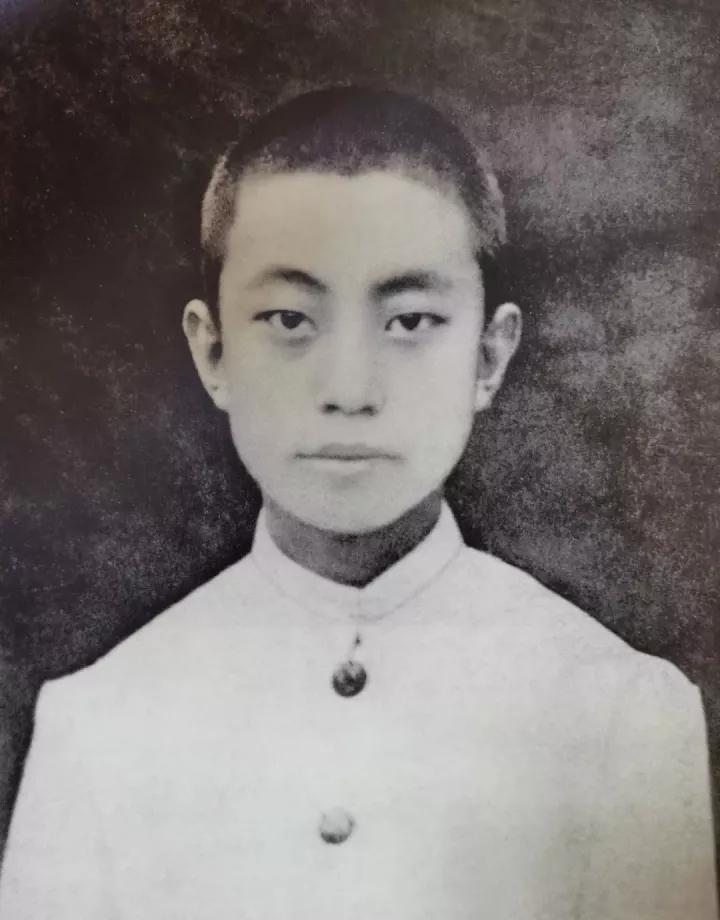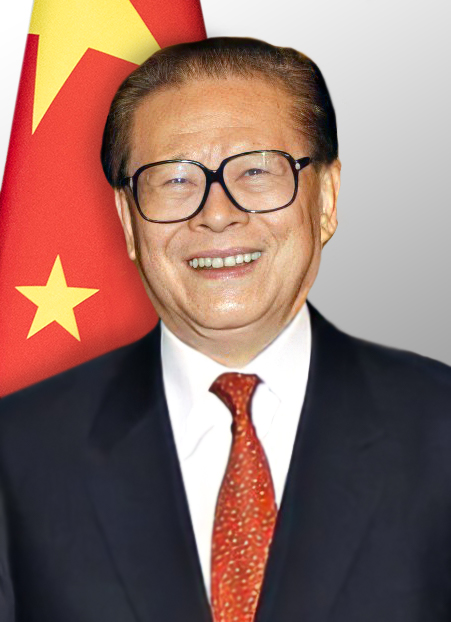|
Hua Guofeng
Hua Guofeng (born Su Zhu (); 16 February 1921 – 20 August 2008) was a Chinese politician who served as chairman of the Chinese Communist Party and the 2nd premier of China. The designated successor of Mao Zedong, Hua held the top offices of the government, party, and the military after the deaths of Mao and Death of Zhou Enlai, Premier Zhou Enlai, but was gradually forced out of supreme power by a coalition of party leaders between December 1978 and June 1981, and subsequently retreated from the political limelight, though still remaining a member of the Central Committee of the Chinese Communist Party, Central Committee until 2002. Born and raised in Jiaocheng County, Jiaocheng, Hua joined the Chinese Communist Party (CCP) in 1938, seeing action in both the Second Sino–Japanese War and the Chinese Civil War as a guerrilla fighter.Ye Yonglie, 邓小平改变中国1978:中国命运大转折 (Deng Xiaoping Changed China-1978: China's Destiny Turned, pp. 108-141, Sichuan Peop ... [...More Info...] [...Related Items...] OR: [Wikipedia] [Google] [Baidu] |
Chairman Of The Chinese Communist Party
The chairman of the Central Committee of the Chinese Communist Party ( zh, s=中国共产党中央委员会主席, p=Zhōngguó Gòngchǎndǎng Zhōngyāng Wěiyuánhuì Zhǔxí) was the party leader, leader of the Chinese Communist Party. The position was established at the 8th National Congress of the Chinese Communist Party, 8th National Congress in 1945 and abolished at the 12th National Congress of the Chinese Communist Party, 12th National Congress in 1982, being replaced by the General Secretary of the Chinese Communist Party, general secretary. Offices with the name Chairman of the Central Executive Committee and Chairman of the Central Committee existed in 1922–1923 and 1928–1931, respectively. History Background Following the establishment of the CCP, its inaugural leader, Chen Duxiu, held various positions including secretary of the Central Bureau, chairman of the Central Executive Committee ( zh, c=中央执行委员会委员长), and general secretary of the C ... [...More Info...] [...Related Items...] OR: [Wikipedia] [Google] [Baidu] |
Chairman Of The Central Military Commission (China)
The chairman of the Central Military Commission is the head of the Central Military Commission (China), Central Military Commission (CMC) and the Supreme Military Command of the People's Republic of China, commander-in-chief of the People's Liberation Army (PLA), the People's Armed Police (PAP) and the Militia (China), Militia. The officeholder is additionally vested with the command authority over China's China and weapons of mass destruction, nuclear arsenals. There are technically two offices with the same name, including the chairman of the Chinese Communist Party (CCP) CMC and chairman of the People's Republic of China (PRC) CMC. However, under the arrangement of "one institution with two names", they function as one office. The officeholder is usually the General Secretary of the Chinese Communist Party, CCP general secretary; this grants significant political power as the only member of the Politburo Standing Committee of the Chinese Communist Party, Politburo Standi ... [...More Info...] [...Related Items...] OR: [Wikipedia] [Google] [Baidu] |
Hua (surname)
Hua is a common transliteration for some Chinese surnames, of which the most common ones are 華/华 () and 花 (). The Cantonese romanizations for 華 and 花 are Wah and Fa, respectively. 華, when pronounced in the fourth tone in Mandarin, is exclusively used in the name of Mount Hua and as a surname. The usual pronunciation of 華 is ''huá'', which literally means "prosper" and is used as a reference to the Chinese people. On the other hand, 花 literally means "flower". Huà (华 / 華) It is listed 28th on the Song dynasty-era ''Hundred Family Surnames''. * Hua Gang (), Chinese educator. * Hua Guofeng (), Chinese politician, born as ''Su Zhu''. * Hua Jianmin (), Chinese politician. * Hua Lefong, Canadian chess player. * Hua Luogeng (), Chinese mathematician. * Hua Sui (; 1439–1513), Chinese scholar and printer. * Hua Tuo (; 140–208), Chinese physician. * Hua Xin (; 157–231), former official of Sun Quan and Minister of Cao Wei * Hua Xiong (; died 191), general under ... [...More Info...] [...Related Items...] OR: [Wikipedia] [Google] [Baidu] |
Death Of Zhou Enlai
Zhou Enlai, one of the principal founders and top leaders of the Chinese Communist Party (CCP) and the People's Republic of China, died at 9:57 a.m. on January 8, 1976, at the age of 78, from bladder cancer at the 305 Hospital in Beijing. At the time of his death, he held several major positions, including Vice Chairman of the Chinese Communist Party, Premier of the State Council, and Chairman of the National Committee of the Chinese People's Political Consultative Conference. Zhou's death marked a pivotal moment in Chinese politics, triggering an outpouring of public mourning, exposing deep political divisions within the CCP, and setting in motion a chain of events that culminated in the Tiananmen Incident of April 1976. Late-life illness 1972 On May 12, 1972, Zhou Enlai's health care doctor conducted a routine urine test once a month and found that the number of red blood cells under the microscope was too high. On May 18, after consultation with several urology expe ... [...More Info...] [...Related Items...] OR: [Wikipedia] [Google] [Baidu] |
Premier Of China
The premier of China, officially the Premier of the State Council of the People's Republic of China, is the head of government of the People's Republic of China (PRC) and leader of the State Council. This post was established in 1911 near the end of the Qing dynasty, but the current post dates to 1954, five years after the establishment of the PRC. The premier is the third-highest ranking official in China's political system after the general secretary of the Chinese Communist Party ( party leader) and the president ( state representative), and holds the highest rank in the civil service of the central government. The premier presides over the plenary and executive meetings of the State Council, and assumes overall leadership over the State Council's work. The premier also signs administrative regulations passed by the State Council and signs the orders approving the appointment and removal of deputy-ministerial level officials of the State Council, as well as chief executi ... [...More Info...] [...Related Items...] OR: [Wikipedia] [Google] [Baidu] |
Paramount Leader
Paramount leader () is an informal term for the most important Supreme leader, political figure in the China, People's Republic of China (PRC). The paramount leader typically controls the Chinese Communist Party (CCP) and the People's Liberation Army (PLA), often holding the titles of General Secretary of the Chinese Communist Party, CCP General Secretary and Chairman of the Central Military Commission (China), Chairman of the Central Military Commission (CMC)."How China is ruled" . The List of state representatives of the People's Republic of China, state representative (President of the People's Republic of China, president) or head of government (Premier of the People's Republic of China, premier) are not necessarily paramount leader—under China's One-party state, part ... [...More Info...] [...Related Items...] OR: [Wikipedia] [Google] [Baidu] |
Ministry Of Public Security (China)
The Ministry of Public Security (MPS, zh , c = , p = Gōng'ānbù ) is the primary law enforcement agency of the China, People's Republic of China. It oversees more than 1.9 million of the country's law enforcement officers and as such the vast majority of the People's Police (China), People's Police. While the MPS is a nationwide police force, conducting counterintelligence and maintaining the political security of the Chinese Communist Party (CCP) are also core functions. The ministry employs a system of Public security bureau (China), public security bureaus throughout the provinces, cities, municipalities and townships of China. The Special administrative regions of China, special administrative regions of Hong Kong and Macau maintain nominally separate police forces. The ministry is headed by the Minister of Public Security (China), minister of public security. Wang Xiaohong has been the minister in charge since June 2022. History The Ministry of Public Security was am ... [...More Info...] [...Related Items...] OR: [Wikipedia] [Google] [Baidu] |
Central Party School
The Central Party School is a higher education institution that trains Chinese Communist Party (CCP) cadres. It is located in Haidian, Beijing, close to Summer Palace and Old Summer Palace. The current president is Chen Xi, a former member of the CCP Politburo. History The school was established as the CCP Central Committee's Marx School of Communism () in Ruijin, Jiangxi, in 1933. It folded when the Chinese Red Army left on the Long March and was revived once the CCP leadership had arrived and settled in Shaanxi, northwest China, in the winter of 1936. It was then renamed the Central Party School. The school was suspended in 1947 when the CCP retreated from Yan'an. It was re-opened in 1948 in a village in Pingshan County, Hebei, before being moved to Beijing after the CCP captured the city in 1949. In 1955, the school was re-organized so that it came directly under the jurisdiction of the CCP Central Committee. The school was abolished in 1966 during the Cultural Revolu ... [...More Info...] [...Related Items...] OR: [Wikipedia] [Google] [Baidu] |
15th Central Committee Of The Chinese Communist Party
The 15th Central Committee of the Chinese Communist Party was in session from 1997 to 2002. The 14th Central Committee preceded it. It was followed by the 16th Central Committee of the Chinese Communist Party. This was the first Central Committee that current CCP general secretary Xi Jinping was elected to, as an alternative member. It elected the 15th Politburo of the Chinese Communist Party in 1997. Plenary sessions were held by the politburo. Members :''In stroke order of surnames:'' Brief chronology #''1st Plenary Session'' #*Date: September 19, 1997 #*Location: Beijing #*Significance: Jiang Zemin was re-appointed General Secretary of the Chinese Communist Party and Chairman of the Central Military Commission. A 24-members Politburo, a 7-members Politburo Standing Committee and a 7-members Secretariat were elected. #''2nd Plenary Session'' #*Date: February 25–26, 1998 #*Location: Beijing #*Significance: The meeting approved lists of nominees for top posts of the 9t ... [...More Info...] [...Related Items...] OR: [Wikipedia] [Google] [Baidu] |
14th Central Committee Of The Chinese Communist Party
The 14th Central Committee of the Chinese Communist Party was in session from 1992 to 1997. It held seven plenary sessions. It was preceded by the 13th Central Committee. It was elected by the 14th National Congress of the Chinese Communist Party and in turn elected the 14th Politburo of the Chinese Communist Party. Members :''In stroke order of surnames:'' Brief chronology #''1st Plenary Session'' #*Date: October 19, 1992 #*Location: Beijing #*Significance: Jiang Zemin was elected General Secretary and Chairman of the Central Military Commission. A 22-members Politburo, a 7-members Politburo Standing Committee and a 5-members Secretariat were elected. Hu Jintao entered the Politburo Standing Committee for the first time as its youngest member. #''2nd Plenary Session'' #*Date: March 5–7, 1993 #*Location: Beijing #*Significance: The meeting approved some economic measures, a program for institutional reform, and lists of nominees for top posts of the 8th National Peop ... [...More Info...] [...Related Items...] OR: [Wikipedia] [Google] [Baidu] |
13th Central Committee Of The Chinese Communist Party
The 13th Central Committee of the Chinese Communist Party was in session from 1987 to 1992. It held seven plenary sessions. It was preceded by the 12th Central Committee and succeeded by the 14th Central Committee. It elected the 13th Politburo of the Chinese Communist Party in 1987. List of members :''In stroke order of surnames:'' Chronology #''1st Plenary Session'' #*Date: November 2, 1987 #*Location: Beijing #*Significance: Zhao Ziyang was elected General Secretary. 18-member Politburo, 5-member Politburo Standing Committee and 5-member Secretariat were elected. Deng Xiaoping was re-elected Chairman of the Central Military Commission, and Chen Yun replaced him as Chairman of the Central Advisory Commission. Jiang Zemin was elected to the Politburo for the first time. #''2nd Plenary Session'' #*Date: March 15–19, 1988 #*Location: Beijing #*Significance: List of candidates for top State posts to be submitted to the 7th National People's Congress and the 7th National ... [...More Info...] [...Related Items...] OR: [Wikipedia] [Google] [Baidu] |



